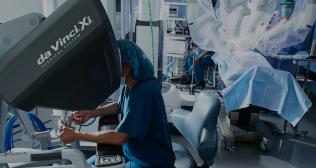
Bariatric Surgery Myths vs. Facts: Debunking Common Misconceptions
Bariatric surgery is a transformative option for individuals struggling with severe obesity and related health issues. Despite its growing acceptance and success in treating obesity, several myths and misconceptions surround bariatric surgery. Dr. Sanjay Verma, a renowned expert in bariatric care, addresses these misconceptions and provides evidence-based facts to help you make informed decisions about this life-changing procedure.
Myth 1: Bariatric Surgery is a Quick Fix for Weight Loss
Fact: Bariatric surgery is not a quick fix but rather a tool to assist in long-term weight management. While it significantly aids in weight loss, it requires a comprehensive approach, including lifestyle changes, diet modifications, and regular exercise. The surgery creates a foundation for weight loss, but sustained success relies on the patient's commitment to healthy living.
Myth 2: Bariatric Surgery is Only for the Obese
Fact: Bariatric surgery is primarily designed for individuals with severe obesity, typically defined as having a Body Mass Index (BMI) of 40 or higher, or a BMI of 35 or higher with obesity-related health conditions. However, it can also be beneficial for individuals with a BMI of 30-35 who have not achieved weight loss through other methods. Each case is evaluated individually to determine eligibility.
Myth 3: Bariatric Surgery Leads to Excessive Loose Skin
Fact: While significant weight loss can result in loose skin, many factors influence skin elasticity, including age, genetics, and overall health. Bariatric surgery itself does not cause excessive loose skin, but the amount of skin that remains can vary. In some cases, patients may opt for body contouring procedures to address loose skin, but this is a personal choice and not a direct consequence of surgery.
Myth 4: Bariatric Surgery is Dangerous and Has High Risk
Fact: Bariatric surgery, like all surgeries, carries risks, but advancements in surgical techniques and technology have significantly improved safety and outcomes. The procedures are generally safe, with most patients experiencing significant health improvements and reduced risk of obesity-related diseases. It's essential to choose a qualified surgeon and follow pre- and post-operative guidelines to minimize risks.
Myth 5: Bariatric Surgery Will Fix All Health Problems
Fact: While bariatric surgery can lead to significant health improvements, including remission of type 2 diabetes, reduced hypertension, and improved sleep apnea, it is not a cure-all. Patients may still need ongoing medical care for other health conditions. The surgery addresses weight and related health issues, but overall health management remains crucial.
Myth 6: After Surgery, You Can Eat Anything and Still Lose Weight
Fact: Post-surgery, patients must adhere to a specific dietary regimen to ensure successful weight loss and maintain health. The procedure changes the digestive system's structure, affecting how the body processes food. Adhering to dietary guidelines, eating smaller portions, and avoiding high-calorie, low-nutrient foods are vital for achieving and maintaining weight loss.
Myth 7: Bariatric Surgery is Only for People Who Are Not Motivated
Fact: Bariatric surgery is often misunderstood as a procedure for those lacking motivation. In reality, many individuals who opt for surgery have made extensive efforts to lose weight through diet, exercise, and other methods but have been unsuccessful. Surgery provides a tool to help achieve weight loss goals, but it requires motivation and commitment to adopt a healthy lifestyle.
Myth 8: Bariatric Surgery Will Solve Psychological Issues
Fact: Bariatric surgery can have positive effects on mental health, such as improved self-esteem and reduced depression, but it is not a solution for underlying psychological issues. Patients are encouraged to seek counseling or therapy to address emotional and psychological factors that may affect their weight and overall well-being.
Myth 9: You Will Regain Weight After Surgery
Fact: Weight regain is possible but not inevitable. Successful long-term weight management depends on adherence to dietary and lifestyle changes. Regular follow-ups with healthcare professionals, ongoing support, and a commitment to a healthy lifestyle play a significant role in maintaining weight loss.
Myth 10: Bariatric Surgery is Not Covered by Insurance
Fact: Many insurance plans cover bariatric surgery, but coverage varies depending on the provider and plan. It is essential to check with your insurance company and understand the specifics of your policy. Many patients find that their insurance covers a significant portion of the costs.
Conclusion
Bariatric surgery offers a powerful tool for managing obesity and improving health, but it is essential to dispel myths and understand the facts. Dr. Sanjay Verma emphasizes the importance of informed decision-making and realistic expectations. By addressing these misconceptions, patients can approach bariatric surgery with confidence and a clear understanding of what to expect, leading to better outcomes and a healthier future.
For personalized advice and more information about bariatric surgery, consult with Dr. Sanjay Verma to explore how this procedure can fit into your weight management journey.
Categories
Clear allMeet the doctor

- General Surgery | General and Minimal Access Surgery | General and Laparoscopic Surgery | Robotic Surgery
-
25 Years
-
1200



















